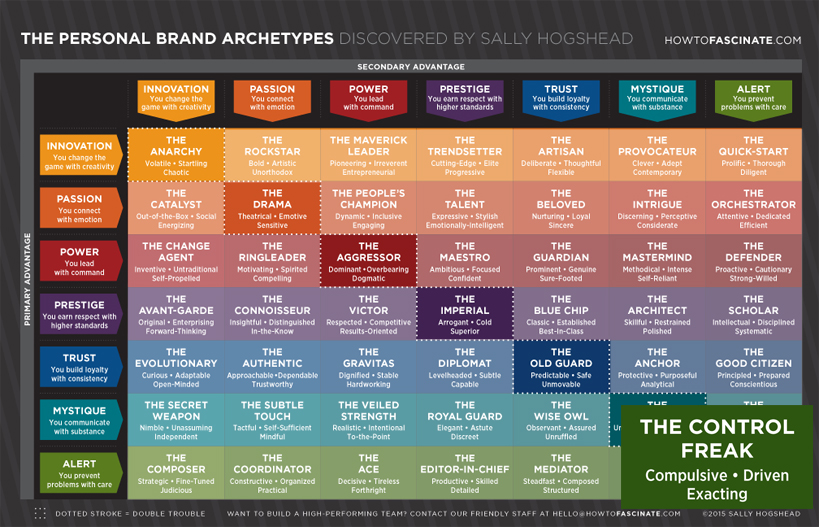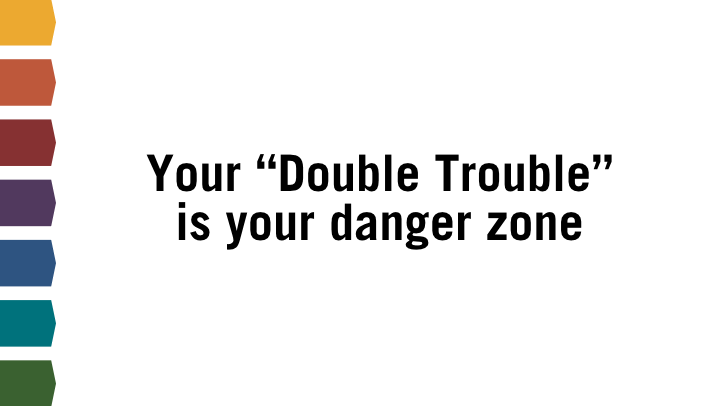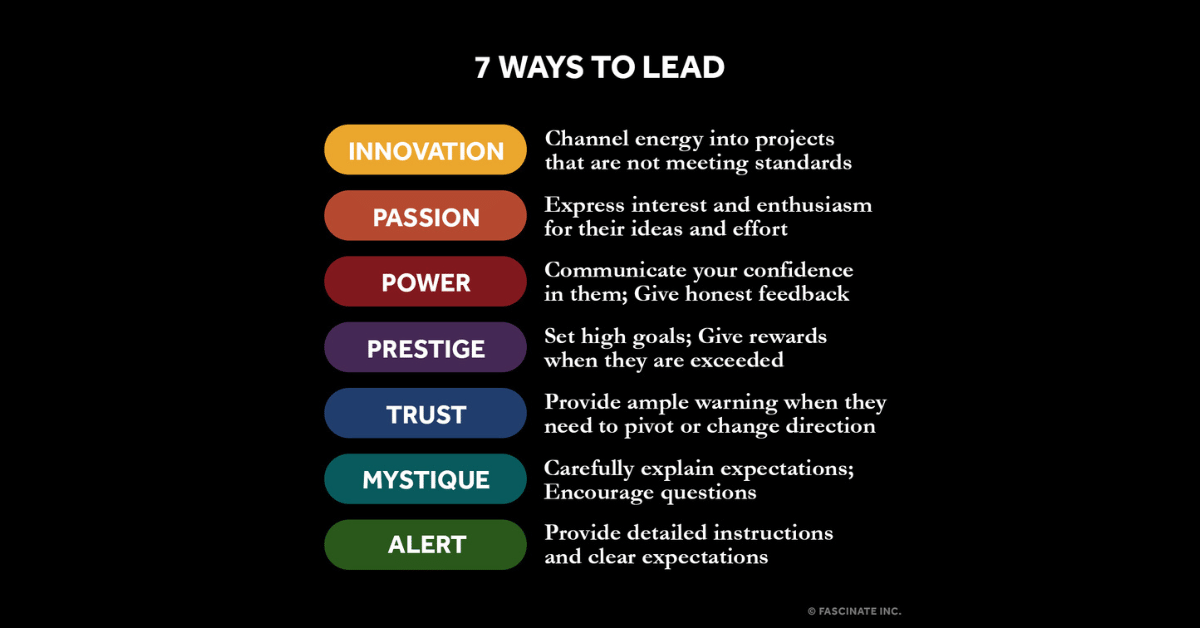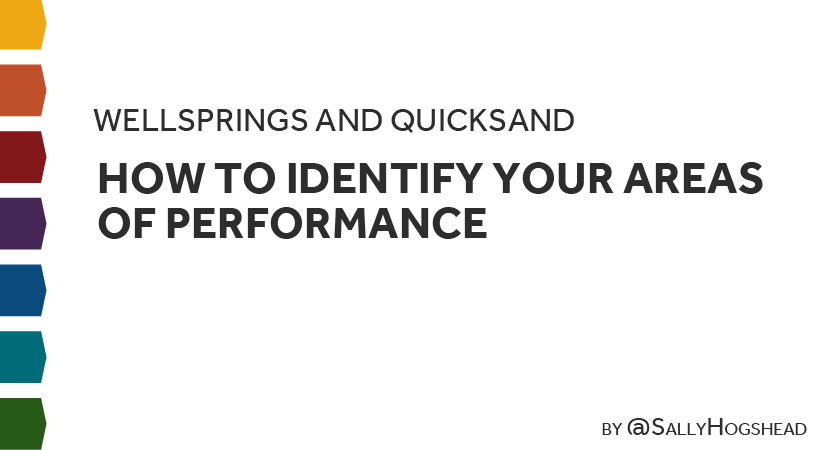Your personality has valuable, captivating differences. These attract people to you, and help you build relationships.
Yet we all have one fatal flaw.
When you get stressed, or tired, or out of whack, you can become exaggeratedly one-dimensional.
Your advantage becomes a disadvantage.
Rather than being seen in a positive light, you can turn people off, or push them away. I call this a “Double Trouble,” because rather than having a healthy balance, you are “doubling up” on one trait.
This causes big problems at work, and at home, often without our realizing it. It’s our personality danger zone.
The good news is, there are patterns behind our pitfalls, and once you know what they are, you can avoid turning people off. Once you know your personality’s danger zones, you can avoid those pitfalls.
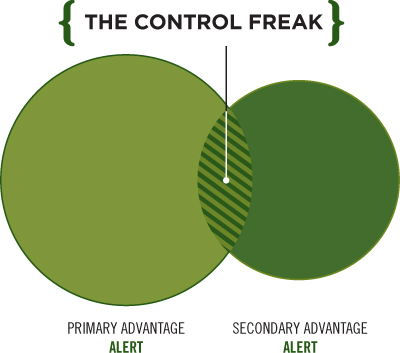
Your personality normally uses two dominant qualities: Your Primary and Secondary Advantages. These two Advantages balance each other and help your Archetype communicate within a healthy range.
Your Primary Advantage + Your Secondary Advantage = Your Archetype
However, what happens when you get stressed, overwhelmed, or fearful?
Alert personalities are natural project managers. They go to great lengths to avoid problems and to deliver on time. They are reliable, practical, and perceive the details with great clarity. They keep the team safe by steering clear of negative consequences.
When quality control turns to nitpicking
Alert personalities provide a strong dose of harsh reality and are good at poking holes in ideas and theories. They can be a helpful devil’s advocate.
Taken too far, an Alert personality becomes a negative influence who can put up a barrier and block attempts at innovation.
If you’re in Control Freak mode, an Alert personality can:
- Forget to use your secondary Advantage
- Become unpleasant company when negative energy overtakes
- Forget to look at the bright side of life; Instead, you point out glitches, complications, problems, and potential conflicts.
- Be too focused on keeping others from making fools of themselves in trying something new.
Your team may get irritated or frustrated by your micromanagement. You constantly check whether they’ve completed their tasks on time. You call them first thing to ensure they know what needs to be done that day.
When you get into Double Trouble mode, you might be perceived as a detail-monger, or potentially even neurotic. You can hamper progress for fear of making mistakes.
Example of an Alert personality in Control Freak mode
Huang is attentive to deadlines, which is a key way he adds value. His primary Advantage is Alert.
Yet when he gets in Double Trouble mode, he becomes obsessive about details at the expense of reasonable interaction. He squelches optimism and creativity in both himself and others. He’s seen as nitpicky, obsessively focused on the details. His pessimism becomes exhausting and a negative force at work. The nitpicking drives everyone crazy. He fails to look for the reason behind a policy, and rigidly adheres to the letter of the law.
Huang speaks Alert, the language of details. Yet in Double Trouble mode, he only speaks the language of compulsion. He becomes driven and exacting.
With a little open-minded thinking, Huang can return to his normal, balanced communication.
Putting details into perspective
When you’re stressed or anxious and find yourself communicating just one way, it’s good to remember your secondary Advantage to balance your messages:
If your Secondary Advantage is Passion, use that Advantage to soften your harshness.
Don’t just focus on the practical side of your project. Build a friendlier team spirit.
If your Secondary Advantage is Trust, use that to build a committed team.
Earn respect because of your dependability.
If your Secondary Advantage is Mystique, use that Advantage to tone down your strong focus on meeting deadlines.
Observe the reaction of your teammates when you point out deadlines and responsibilities.
If your Secondary Advantage is Prestige, use it to motivate others.
Tell your team what the successful completion of a project will do for their career. Explain how much recognition they’ll receive.
If your Secondary Advantage is Power, use that Advantage to become an authoritative voice.
Get your team to want to work for you rather than executing their tasks out of fear of negative consequences.
If your Secondary Advantage is Innovation, use it to see the positive side of new opportunities.
You tend to weigh the negative consequences more heavily than the potential success new opportunities can bring.
Do you feel yourself slipping into the Control Freak when you feel stressed or overwhelmed?
What Advantage do you use to balance it out?
Discover your most impressive qualities today. Log in or take the Fascinate® test here.
In less than 5 minutes, you’ll find out exactly how you’re most likely to add value. Unlock your Fascinate profile–or send a friend to find theirs–right here.
